Current News
/ArcaMax

Elon Musk wins vote to establish his own city in Starbase, Texas
Voters in South Texas delivered Elon Musk a decisive victory, overwhelmingly approving a ballot measure to establish Starbase, Texas, as its own city.
By a margin of 173 to 4, residents of the far-flung community surrounding SpaceX’s rocket-launch site and headquarters voted resoundingly in favor of the incorporation effort, according to ...Read more
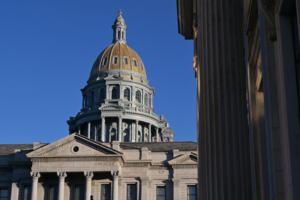
Colorado House passes immigrant protection bill amid new Trump lawsuit against state
A day after the Trump administration sued Denver and Colorado officials to invalidate restrictions on cooperation with immigration enforcement, Democratic lawmakers gave final approval Saturday to a bill that would expand the state’s laws.
As the end of the 2025 legislation approaches, the state House’s 42-21 party-line vote approving ...Read more

Two men in ICE custody died of 'natural' causes. Were their deaths preventable?
He survived Russia’s invasion of Ukraine, evacuated women and children in Kyiv to safety, and then crossed the border to escape the war.
But after he arrived at the Krome North Service Processing Center in southwest Miami-Dade County, Maksym Chernyak, 44, suffered a stroke. Staff took more than 40 minutes to call 911. Later that day, on Feb. ...Read more
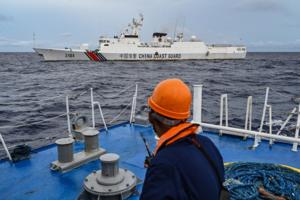
Vietnam protests China, Philippines activity in disputed waters
Vietnam lodged a formal protest against China and the Philippines for activities that it said violate its sovereignty in the Spratly Islands area, in a move that underscores the persistent tensions over contested waters in the South China Sea.
Vietnam requires relevant parties to “refrain from actions that complicate the situation” and to ...Read more

South Korea's ruling party picks ex-minister as presidential nominee
South Korea’s ruling party has selected former labor minister Kim Moon-soo as its presidential candidate to take on opposition nominee Lee Jae-myung, who is leading opinion polls ahead of next month’s election.
The race to become the People Power Party’s candidate had narrowed down to Kim and former PPP leader Han Dong-hoon. Ex-acting ...Read more
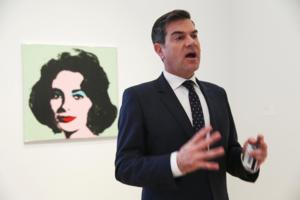
Art Institute of Chicago president reportedly stripped on plane, faces independent probe
CHICAGO — The president and director of the Art Institute of Chicago faces an independent investigation amid a report that he stripped on a commercial airplane.
James Rondeau is voluntarily taking time away from his office while the investigation is completed, an Art Institute spokesperson said in a statement. “The Art Institute takes this ...Read more
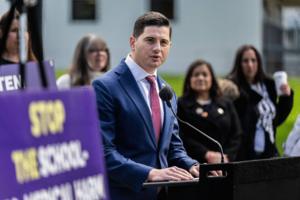
LA federal prosecutors resign over plea deal for convicted sheriff's deputy, sources say
LOS ANGELES — Several federal prosecutors — including the chief of the Public Corruption and Civil Rights Section — have submitted their resignations following a plea deal offered by the new U.S. attorney in Los Angeles to a sheriff’s deputy who had already been found guilty of using excessive force.
Two sources confirmed to The Times ...Read more
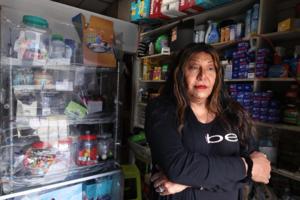
String of unsolved 'transphobic' attacks target MacArthur Park shopkeeper
LOS ANGELES — At her hole-in-the-wall convenience store across the street from MacArthur Park, Sabrina de la Peña has supplied cold beverages, household necessities and kind words for nearly 30 years.
Despite issues with crime in the area, De la Peña, 61, said she never felt threatened by a customer until last month. Over the course of two ...Read more
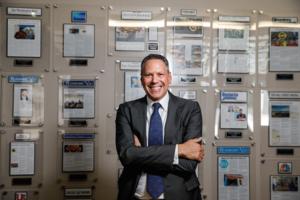
Fired federal prosecutor claims ex-Fatburger CEO's 'smears' reached White House
LOS ANGELES — A former burger chain CEO under federal indictment on gun and fraud charges now faces another accusation: Allegedly spreading "smears" that reached the White House through conservative pundits, leading to the prosecutor who was handling his case getting fired.
The latest claim was leveled by Adam Schleifer, formerly an assistant...Read more

Far-left groups try to grow Chicago ranks at rally against Donald Trump at Union Park
The Little Leaguers warming up in a Union Park outfield craned their necks between practice swings Saturday morning to listen to the message shouted by a nearby crowd.
What they heard — the protest chants of an anti-Trump movement trying to grow its ranks in Chicago — was aimed not only at the White House, but anyone frustrated by the ...Read more

UPS and US Postal Service announce significant job cuts. What you need to know
LOS ANGELES — Jobs for thousands of letter and package delivery workers at the U.S. Postal Service and UPS could be cut this year, with both looking to slash costs and streamline operations as the effects of President Donald Trump's tariffs and digital innovation ripple through the economy.
But what that means for people with a package to ...Read more
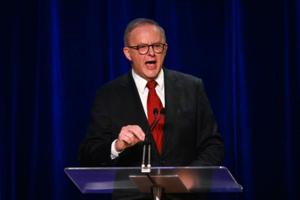
Trump backlash helps Australia's leader to historic reelection
For the second time in a week, voters in a prominent U.S. ally angered by President Donald Trump punished conservatives and reelected a left-leaning incumbent.
Australian Prime Minister Anthony Albanese was poised to win the largest victory for his center-left Labor Party since 1946, both in terms of two-party preferred and overall seat count....Read more
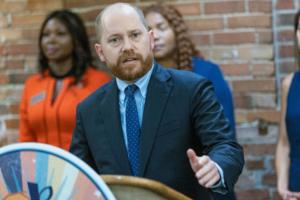
Democratic Party of Georgia elects Charlie Bailey as new chair
ATLANTA — Charlie Bailey, the former statewide candidate for attorney general and later lieutenant governor, has been elected chair of the Democratic Party of Georgia.
He won with about 53% of the vote in a runoff Saturday against former Rome City Commissioner Wendy Davis.
“People in our base have lost faith in our ability to fight for ...Read more
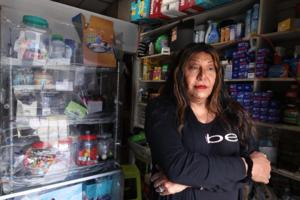
String of unsolved 'transphobic' attacks target MacArthur Park shopkeeper
LOS ANGELES — At her hole-in-the-wall convenience store across the street from MacArthur Park, Sabrina de la Peña has supplied cold beverages, household necessities and kind words for nearly 30 years.
Despite issues with crime in the area, De la Peña, 61, said she never felt threatened by a customer until last month. Over the course of two ...Read more
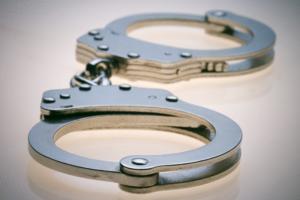
Elizabeth Smart's kidnapper arrested for violating probation as sex offender
Wanda Barzee, the woman who kidnapped Elizabeth Smart and held her captive for months in the early 2000s, has been arrested in Utah for violating the terms of her probation as a sex offender.
Barzee was arrested at her Salt Lake City home on Thursday after visiting at least two parks — Liberty Park and Sugar House Park — in the city last ...Read more

A 'well-orchestrated execution': Mystery surrounds school official's killing at L.A. Live
LOS ANGELES — It was the height of the dinner rush at L.A. Live, a glittering, neon-drenched complex of restaurants and bars steps from Crypto.com Arena.
Around 6 p.m. on Nov. 28, 2023, a white Ford Escape pulled out of rush hour traffic on Figueroa Street, stopping along the curb outside Fixins Soul Kitchen.
A man stepped out of the Ford, ...Read more

Here's how the Clearwater Ferry investigation may play out
TAMPA, Fla. — As chaotic, violent and arbitrary as Sunday night’s Clearwater Ferry crash was, it also seemed like an obvious crime scene.
Onlookers watched as the boat that slammed into the ferry drove away. Police later found the boat and its driver nearly 4 miles away. Retrieved footage soon revealed the seconds leading up to the crash �...Read more
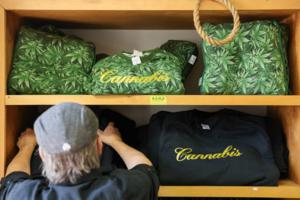
Legalize marijuana, say most Georgians in an AJC poll
ATLANTA — Most Georgia voters say marijuana should be made legal for recreational use, a sign of growing acceptance of a drug that‘s allowed in 24 other states.
Nearly 56% of respondents in a poll by The Atlanta Journal-Constitution supported legalizing marijuana, the highest level of support in recent years. Just 46% favored recreational ...Read more
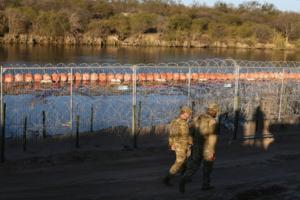
Trump tells Mexican president he wants US troops to fight drug cartels
MEXICO CITY — Mexico's leader said Saturday that she rejected an offer by President Donald Trump to send U.S. troops into her country to fight drug cartels.
Speaking at a public event, President Claudia Sheinbaum confirmed a report published Friday in the Wall Street Journal that said that Trump had pressured Mexico to allow more U.S. ...Read more

Singapore's ruling party keeps majority in victory for Wong
Singapore’s ruling party was on track to secure a convincing victory in Saturday’s election as voters worried about rising costs and a worsening global economic climate rallied behind incumbent Prime Minister Lawrence Wong in his first electoral test since taking office a year ago.
Official results from the nation’s elections department ...Read more
Popular Stories
- After disasters, FEMA leases apartments for survivors. But not after the LA fires
- 'Just bodies of animals everywhere': Toxic algae bloom taking a toll on Southern California's marine life
- Early months of combined migrant, homeless shelters in Chicago see success, structural challenges
- Government watchdog expects Medicaid work requirement analysis by fall
- Security cameras are coming to Altadena to combat surge in thefts. Some residents say it's not enough





